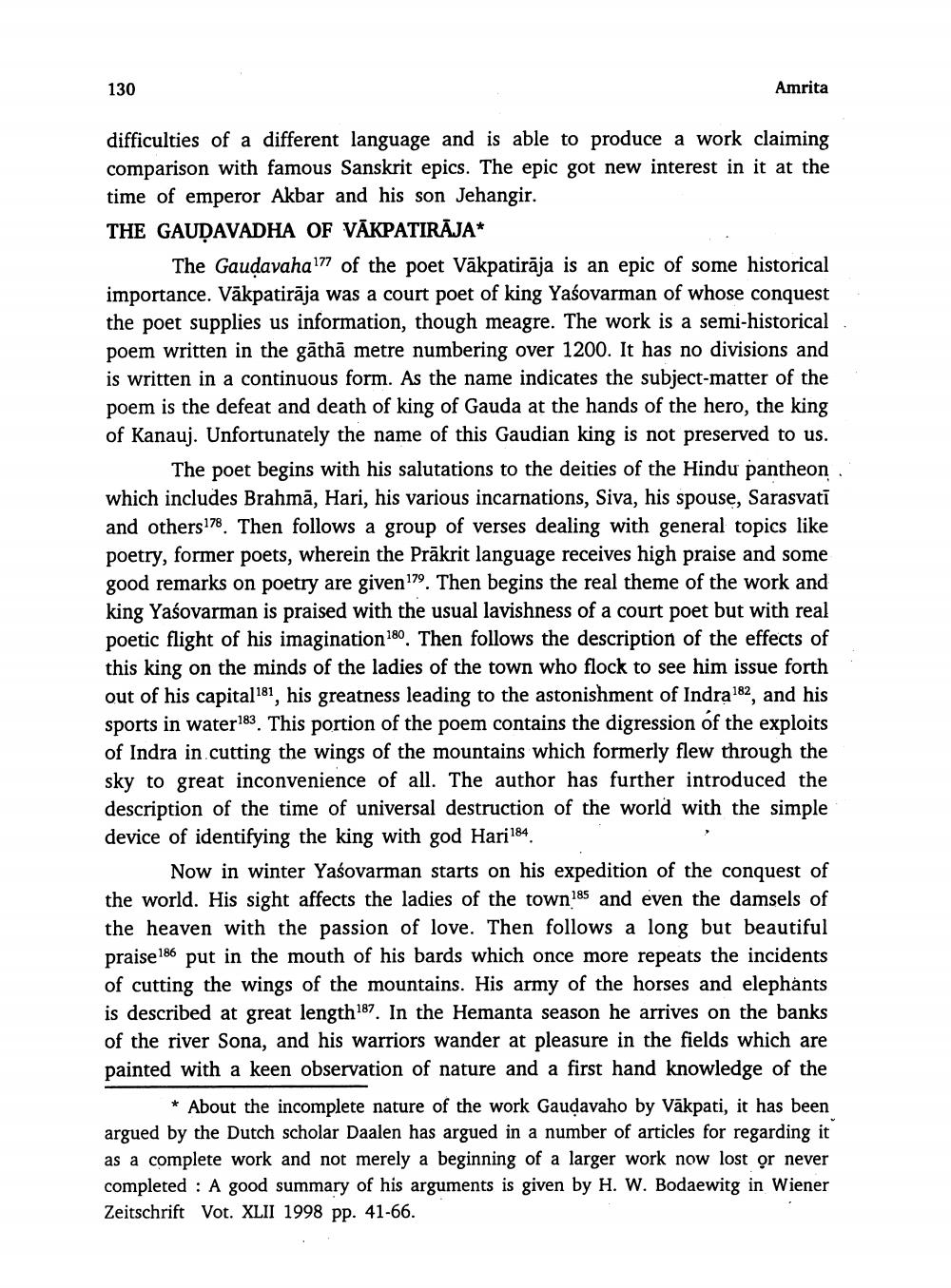________________
130
Amrita
difficulties of a different language and is able to produce a work claiming comparison with famous Sanskrit epics. The epic got new interest in it at the time of emperor Akbar and his son Jehangir. THE GAUDAVADHA OF VĀKPATIRĀJA*
The Gaudavaha 177 of the poet Vākpatirāja is an epic of some historical importance. Vākpatirāja was a court poet of king Yaśovarman of whose conquest the poet supplies us information, though meagre. The work is a semi-historical poem written in the gāthā metre numbering over 1200. It has no divisions and is written in a continuous form. As the name indicates the subject matter of the poem is the defeat and death of king of Gauda at the hands of the hero, the king of Kanauj. Unfortunately the name of this Gaudian king is not preserved to us.
The poet begins with his salutations to the deities of the Hindu pantheon which includes Brahmā, Hari, his various incarnations, Siva, his spouse, Sarasvati and others 178. Then follows a group of verses dealing with general topics like poetry, former poets, wherein the Prākrit language receives high praise and some good remarks on poetry are given 179. Then begins the real theme of the work and king Yasovarman is praised with the usual lavishness of a court poet but with real poetic flight of his imagination 180. Then follows the description of the effects of this king on the minds of the ladies of the town who flock to see him issue forth out of his capital 181, his greatness leading to the astonishment of Indra 182, and his sports in water183. This portion of the poem contains the digression of the exploits of Indra in cutting the wings of the mountains which formerly flew through the sky to great inconvenience of all. The author has further introduced the description of the time of universal destruction of the world with the simple device of identifying the king with god Hari 184
Now in winter Yasovarman starts on his expedition of the conquest of the world. His sight affects the ladies of the town185 and even the damsels of the heaven with the passion of love. Then follows a long but beautiful praise 186 put in the mouth of his bards which once more repeats the incidents of cutting the wings of the mountains. His army of the horses and elephants is described at great length 187. In the Hemanta season he arrives on the banks of the river Sona, and his warriors wander at pleasure in the fields which are painted with a keen observation of nature and a first hand knowledge of the
* About the incomplete nature of the work Gaudavaho by Vākpati, it has been argued by the Dutch scholar Daalen has argued in a number of articles for regarding it as a complete work and not merely a beginning of a larger work now lost or never completed : A good summary of his arguments is given by H. W. Bodaewitg in Wiener Zeitschrift Vot. XLII 1998 pp. 41-66.




